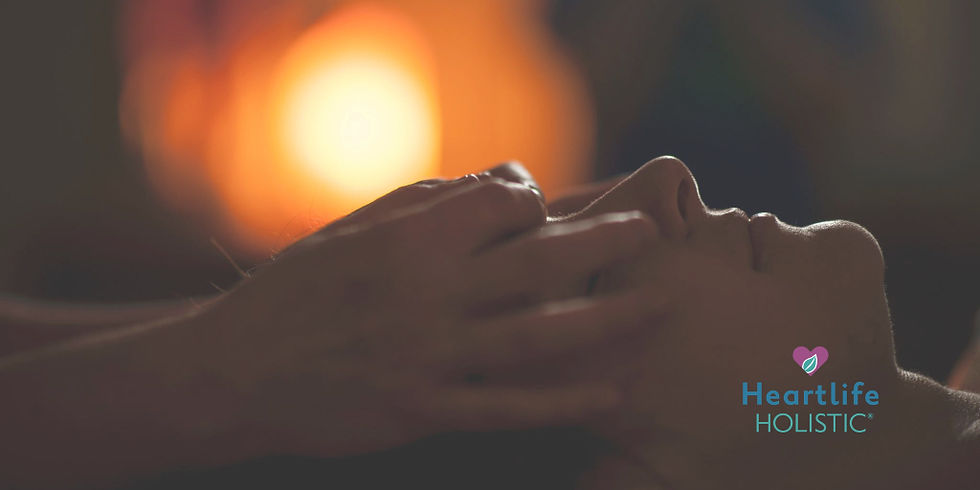Research: Reiki Healing and the Vagus Nerve
- Kathy Morelli

- Aug 10, 2025
- 3 min read
Updated: Aug 12, 2025

Reiki is a system of natural healing techniques whereby the practitioner taps into the universal energy field and also interacts with the human bioenergy field. It’s not based on religious beliefs, it’s actually a bioenergetic phenomena. Reiki does has a philosophy of love and acceptance associated with its practice, however, it doesn’t interfere with or replace any religious belief systems.

Reiki is practiced in hundreds of hospitals across the United States and the world. Reiki is not a replacement for medical treatment, but is a complementary therapy. While large and robust quantitative research studies don’t exist regarding the effects of Reiki, smaller studies have been conducted. Multiple meta-analyses of the data from those smaller studies suggest Reiki invokes the relaxation response and improves quality of life markers, indicating more well controlled studies are warranted.
David McManus, Ph.D., a chemical engineer affiliated with the University of Massachusetts Medical Center, conducted a recent meta-analysis of peer-reviewed Reiki research studies. After analyzing the studies’ findings, he found Reiki had a positive effect on the autonomic nervous system and there was “reasonably strong evidence for Reiki being more effective than placebo…” (McManus, 2017).
Dr. McManus found the studies data indicated that Reiki works on the level of the autonomic nervous system. He says that Reiki activates the parasympathetic nervous system, as measured by markers such as reduced heart rate, reduced blood pressure, and increased heart rate variability. Plus, Dr. McManus found that, for patients suffering from chronic health conditions, Reiki is measurably more effective than placebo in reducing pain, anxiety, depression, and improving self-esteem and quality of life.
Dr. McManus believes Dr. Stephen Porges’ Polyvagal Theory is the context for Reiki’s psychophysiologic effects. The Polyvagal Theory expands on the traditional view of the autonomic nervous system (ANS) as having two branches: the sympathetic (fight or flight) and the parasympathetic (relaxation). The Polyvagal Theory adds the effects of the vagus nerve, the longest cranial nerve, into our existing understanding of the fight or flight. The vagus nerve is a mediator between the brain and body. The vagus nerve, originating in the deep lower brain, wanders throughout the body and innervates every organ in the body. Thus, our thoughts and feelings and body reactions are tightly bundled together by neurophysiologic effects.
Pain perception is tightly bundled into the response of our autonomic nervous system. Research shows that poor emotional health and chronic pain are associated autonomic nervous system (ANS) dysregulation and also decreased heart rate variability (HRV). The vagus nerve plays a big part in balancing the ANS and mediating heart rate variability (HRV).
Research shows that an increase in heart rate variability (HRV) is associated with an increase in well being, plus an ability to be emotionally flexible and reduced pain sensitivity. An increase in HRV supports an upward spiral in mental and physical health, in emotional and physical well-being.
Dr. McManus (2012) says:
“Artificial stimulation of the parasympathetic nervous system via the vagus nerve has been shown to reduce the perception of pain, reduce depression, and improve mood and quality of life.”

The research indicates that Reiki is profoundly relaxing. It’s a natural stimulant of the relaxation branch of the autonomic nervous system (ANS). The research indicates that Reiki reduces blood pressure, reduces heart rate and increases heart rate variability (HRV). These measurements indicate Reiki’s action on the vagus nerve, which pervades all organs and the lower brain. A well functioning vagus nerve supports healing throughout the mind and body.
Dr. McManus states that, according to the research data, Reiki has the potential to act as a complementary healing agent for a broad range of chronic conditions.
Dr. McManus suggests more research be done to see what the ‘dosage” of Reiki might be, that is, how many Reiki sessions are needed to increase HRV and stabilize that increase and thus heal the vagus nerve reaction, that has been stimulated by chronic stress or pain.
_____________________________________________________________________
McManus, D. (2017). Reiki Is Better Than Placebo and Has Broad Potential as a Complementary Health Therapy. Journal of evidence-based complementary & alternative medicine, 22(4), 1051-1057.


Comments